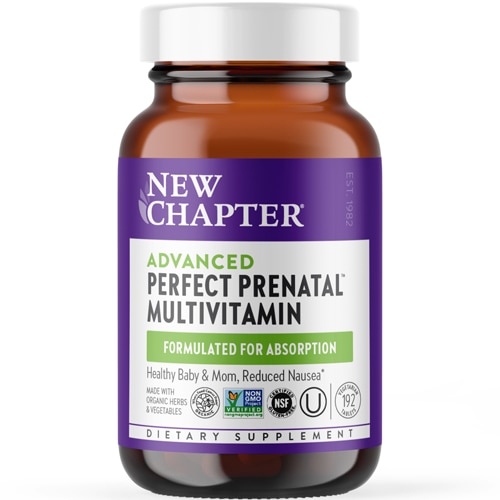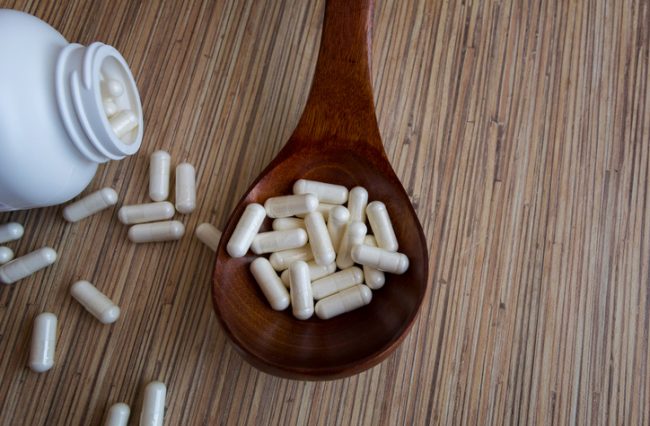From citamin D and vitamin E to antioxidants and amino acids, it can feel impossible keeping track of what our bodies need to function brilliantly—and to know the difference among our most important nutrients.
Case in point: Folic acid and folate. Often used interchangeably—even among medical professionals—these two different forms of water-soluble vitamin B9 (yes, another nutrient to remember!) have distinctly different impacts on your health. Here’s the difference between them—and why it’s crucial to know how they vary.
Folate
Eggs, oranges, garbanzo beans, leafy greens, avocados—these foods have more in common than just deliciousness: They all contain folate. Formerly known as folacin (to confuse things further), folate plays a vital role in DNA formation, reproductive health for both males and females (sperm and egg production, respectively), the growth and health of fetuses, and immune and nerve functions. What’s more, research reveals that individuals who eat diets high in folate—consider yourself blessed if you’re a fan of beets—may be naturally supporting their cognitive and cardiac health.†
Folic acid
Folic acid, on the other hand, is the synthesized version of folate. It started appearing in foods in 1998 when the FDA began requiring that grains be enriched with additional nutrients. Breads, breakfast cereals, pastas, and more were specifically supplemented with folic acid in part as a response to hinder the growing rate of Neural Tube Defects in expecting mothers. (Indeed, some argue that folate is the single most important nutrient for pregnant women, and folic acid is one the leading ingredients of prenatal vitamins.) And while the push to increase folate in pregnant women’s diets has certainly been a boon across the board—reducing birth defects by up to 26%—folic acid is managed differently by the body than its derivative.†
How the body handles folate and folic acid differently
Organic folates—those found in, say, black eyed peas and broccoli—are metabolized in the small intestine. Folic acid, meanwhile, is handled by the liver—a process that requires an enzyme called dihydrofolate reductase. Due to the low activity of this enzyme, however, unmetabolized folic acid may accumulate in the body.
What does this mean—and how might it impact you? Given that the standard American diet includes large amounts of processed foods fortified with folic acid—from energy bars to cold cereal and white rice—it’s possible to consume an overabundance of folate’s synthesized form.
Look at it this way: A women should get 400 mg of folate a day, but some cereals, as NBC reports, contain more than that required daily allowance through folic acid (and many inadvertently—or just because they’re plain hungry—eat more than one serving size). Couple that with a vitamin-enhanced water and you may be getting a huge dose before your folic acid-fortified lunch sandwich is served (hello, bread). And all that extra folic acid coursing through your bloodstream may lead to health issues—so much so countries, such as New Zealand, have delayed or halted the “mandatory” fortification of grain products.
Nutrition versus fortification—and how to stay safe
Whole foods—and not the trendy market—are, inarguably, the wisest way to improve (or sustain) your overall health, and most medical professionals would advocate reaching for nutrient-dense foods rather than relying on synthetic counterparts or fortified items. With that in mind, to bolster your intake of folate, fill your plate with asparagus, spinach, liver (try it with caramelized onions) and Brussels sprouts, which the National Institutes of Health reports are the foods highest in folate.
Other top options include green peas, wheat germ, tomato juice, citrus fruits, mustard greens, Dungeness crab, and peanuts. Additionally, examine labels (particularly when it comes to cereals and energy drinks) and elect whole grain flour, rice, and bread products, which don’t mandate fortification with folic acid. In other words, eat whole to be whole.
†These statements have not been approved by the Food and Drug Administration. These products are not intended to diagnose, treat, cure or prevent disease.





